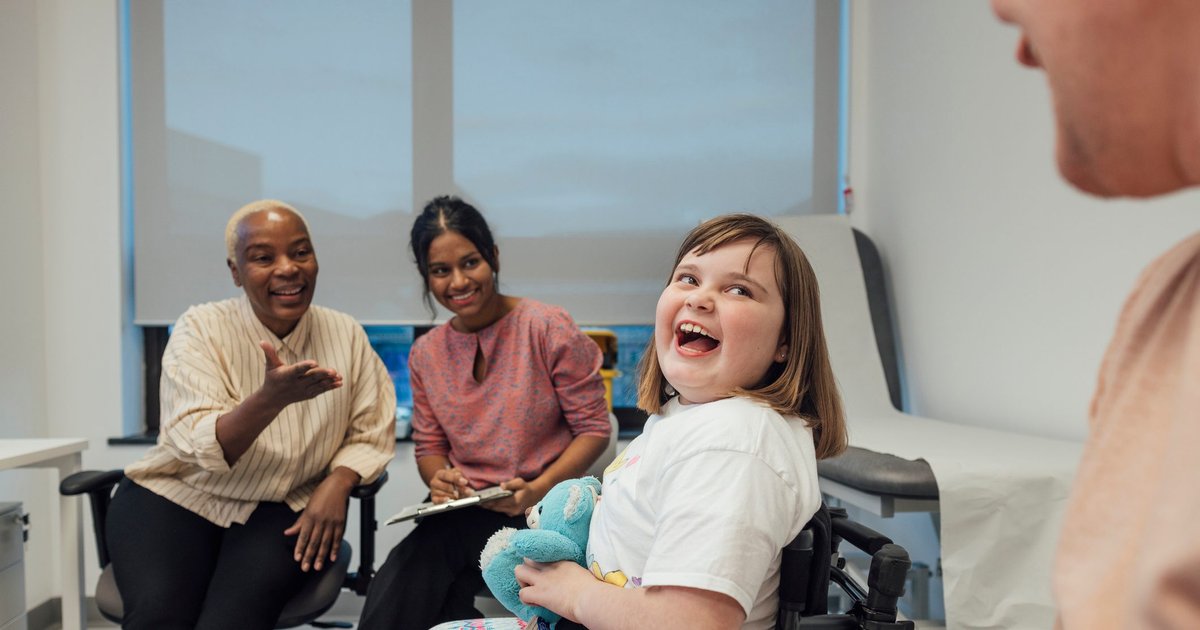The McKinsey report said there are “large and persistent gaps” in health data on people with disabilities.
It adds that an estimated 1.3 billion people – about 16% of the world’s population – live with “severe” disabilities and face more barriers to accessing healthcare than the general population.
McKinsey says closing these health disparities requires “first and foremost the collection and use of good data.”
The report is a collaborative project between the McKinsey Health Institute (MHI) and The Missing Billion. MHI is a global health institute dedicated to providing analysis and insights to improve population health in areas that have historically underinvested in. The Missing Billion is a global effort to advance health care access and improved outcomes for people with disabilities.
The report was co-authored by McKinsey’s public health and social sector partner, Sunny Sun, Phyllis Haight, co-founder of The Missing Billion, and Hannah Cooper, professor at the London School of Hygiene and Tropical Medicine.
The study evaluated data collection methods in nine countries: Australia, Brazil, Canada, France, Malawi, South Africa, Thailand, Uganda and the UK.
The two organizations identified actions that countries can take to improve their data maturity and actions that stakeholder groups can take to overcome gaps in disability health data.
Disability data needed to close health disparities
MHI says better data is needed on:
Increase awareness of the magnitude and nature of health outcome disparities Increase awareness of the benefits of improving health equity and outcomes for people with disabilities Identify and quantify barriers to health care access experienced by people with disabilities Close gaps in health outcomes by using data to communicate and amplify successful outcomes Establish standardized measurements, set goals, and monitor progress of interventions
The report said people with disabilities often have more difficulty accessing medical care than the general population.
This health disparity exists because some health care workers lack the training and confidence to communicate with and serve people with disabilities, the report said.
In a recent survey, only two in five U.S. physicians said they were “very confident” in their ability to provide the same quality of care to patients with disabilities, and only three in five strongly agreed that patients with disabilities would be welcome in their clinics.
McKinsey also said negative attitudes from health care professionals “can have a measurable, negative impact on the experiences of patients with disabilities.”
The report gives the example of a South African care team for a blind and HIV-infected woman who assumed she was not sexually active or did not need family planning.
Another example was given of a deaf man in Kenya who missed the audio notification that it was his turn to see a doctor, so he ended up sitting in the waiting room until the clinic closed.
People with disabilities may be seen as “less worthy of care”
“People with disabilities, as a group, are sometimes seen as less deserving of care in times of crisis,” the report explains.
“For example, in some US states, ventilator allocation protocols during the pandemic appeared to recommend removing these life-saving devices from people who use ventilators for chronic illnesses.”
Meanwhile, in the UK, several COVID-19 patients with learning disabilities have reportedly been given automatic “do not resuscitate” notices without their consultation or consent.
McKinsey also said disability is more prevalent among certain groups who may be marginalized in other ways, “exacerbating barriers to accessing health care.”
They add: “For example, 24 percent of people with disabilities live below the national poverty line, compared with 13 percent of people without disabilities. And according to a McKinsey study, less than one-fifth of Americans with disabilities are employed, compared with nearly two-thirds of people without disabilities.”

